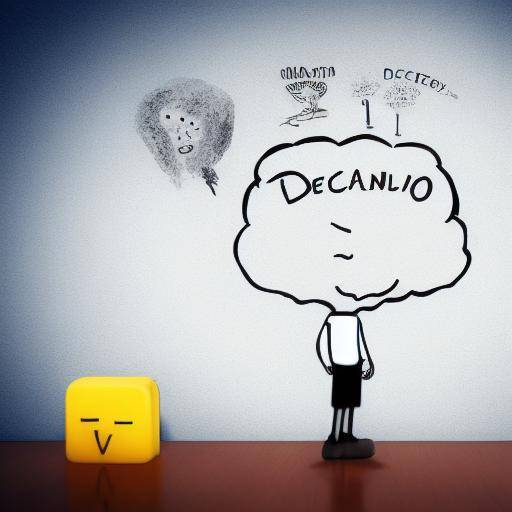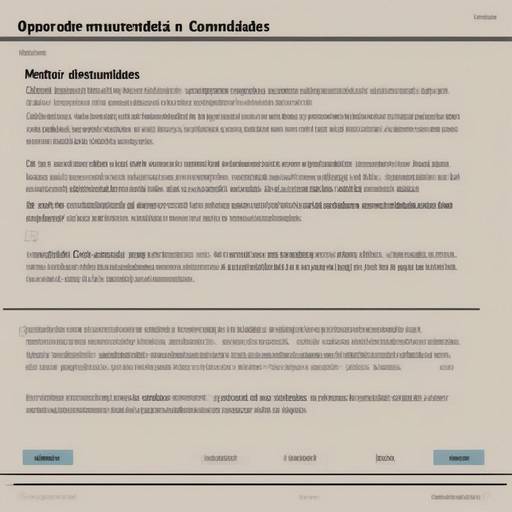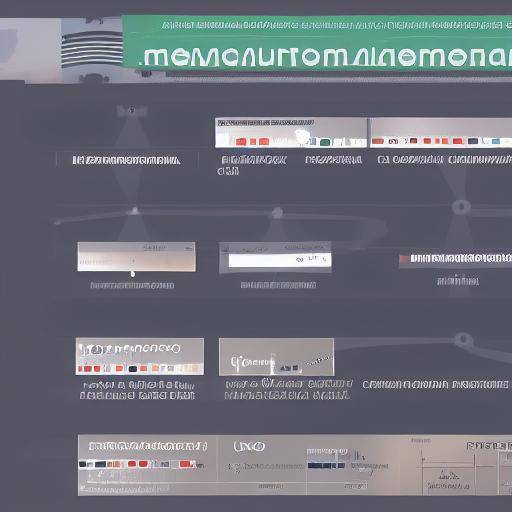
Feedback is a powerful tool that, when used properly, can contribute significantly to the development of a growth mentality. In this article, we will explore in detail how feedback can influence our personal and professional growth, and how we can effectively use it to promote a solid growth mentality. We will learn about the historical roots of feedback, explore its benefits and challenges, examine its application in different contexts, and provide practical advice and expert perspectives. In addition, we will compare feedback with the mentality of growth and personal growth, highlighting their similarities, differences and possible synergies.
Introduction
The growth mentality refers to the belief that our abilities and abilities can develop over time through effort, practice and continuous learning. On the other hand, feedback implies receiving information about our performance, behavior or results, with the objective of identifying areas of improvement and growth. The connection between these two concepts is crucial, as feedback can be a catalyst for the development of a solid growth mentality.
History and Background
The idea of feedback as a means for personal and professional development has deep roots in psychology and education. From the theories of feedback in behavioral psychology to its application in educational and labor environments, feedback has evolved significantly over time.
In the 1920s, psychologists B.F. Skinner and Edward Thorndike developed fundamental theories on operating conditioning and the effect of feedback on learning. These theories laid the foundation for understanding how feedback responses affect behavior and skills development.
During the 20th century, feedback became a central element in educational and training systems, as their power to improve performance and promote personal growth was recognized. In working environments, feedback began to be seen as a tool for continuous improvement, motivation and skills development.
Analysis in Deep
The feedback, when offered and received constructively, can bring with it a number of significant benefits. However, it also entails potential challenges, such as resistance to criticism or misinterpretation of messages. It is essential to understand how to overcome these challenges to maximize the benefits of feedback.
Research has shown that effective feedback can increase self-efficiency, motivation and performance of people in various areas. On the other hand, lack of feedback or inadequate feedback can lead to complacency, lack of development and dissatisfaction in work or studies.
Comprehensive review
The strategic use of feedback not only drives personal growth, but also contributes to continuous improvement in educational and labour environments. It is essential to understand how to effectively implement and receive feedback to maximize its impact on our development.
At present, there are different approaches and practices for feedback, from the traditional performance evaluation model to the most modern methodologies that emphasize continuous and growth-oriented feedback. Understanding these practices and their application in specific contexts is essential to maximize the potential for feedback.
Comparative analysis
The interrelationship between feedback, the mentality of growth and personal growth reveals important connections that can enrich the individual development process. Although each of these concepts has its unique characteristics, its strategic combination can create an enabling environment for learning, personal improvement and achieving goals.
Feedback can be considered as a vehicle to promote and strengthen the growth mentality, as it provides information that allows people to identify areas of improvement, learn from mistakes and set development goals. At the same time, fostering a growing mentality can influence how people receive and use feedback, encouraging them to see it as an opportunity to grow and evolve.
In the context of personal growth, constructive feedback can play a significant role in skills development, self-consciousness and adaptive capacity. By accepting and using feedback in a reflective manner, people can enhance their personal growth, identify areas of development and adjust their approach to achieving goals and self-improvement.
Practical Tips and Accessible Recommendations
To effectively use feedback in the development of a growing mentality, it is crucial to adopt approaches and techniques that foster reflection, planning and action. Some practical strategies include:
- Accept feedback with an open and responsive mentality, seeing it as an opportunity to grow.
- Identify patterns and trends in feedback received to establish realistic and measurable development goals.
- Seek feedback proactively, requesting specific feedback on areas of improvement or development.
- Using feedback as a springboard for action, establishing concrete plans to implement changes and improvements.
These approaches can help to meaningfully integrate feedback into the personal and professional development process, promoting a dynamic and achievement-oriented growth mentality.
Industry Perspectives and Expert Reviews
The feedback and its role in the development of a growing mentality have been the focus and interest of experts in psychology, education, leadership and personal development. The views and perspectives of these experts shed light on the importance of feedback in the context of growth and development.
According to Dr. Carol Dweck, a psychology expert and author of the book "Mindset: The New Psychology of Success", feedback can significantly influence how people address challenges, learn from mistakes and develop their potential. Their research on the growth mentality has shown that the way people interpret and use feedback can have a profound impact on their ability to grow and prosper.
Case Studies and Applications in Real Life
Case studies and applications in real life provide concrete examples of how effective feedback can boost the development of a growth mentality. These cases illustrate how individuals, teams and organizations have used feedback to overcome challenges, take advantage of opportunities and achieve significant goals.
In a recent case study in the field of education, it was observed that training feedback, which focuses on skills development and performance improvement, had a positive impact on the learning of students and their willingness to take on academic challenges. The results revealed that when receiving specific and goal-oriented feedback, students showed a greater willingness to strive, learn from mistakes and pursue continuous improvement.
Future Trends and Predictions
As educational, labour and personal development practices evolve, feedback and its relationship with the growth mindset are expected to remain focusses of interest and attention. New tools and approaches are expected to emerge to facilitate effective feedback, tailored to individual and contextual needs.
In addition, it is anticipated that the integration of feedback into technological and virtual environments will play a significant role in the development of skills, the improvement of performance and the promotion of a growth mentality in a digital environment.
Conclusions
In short, feedback plays a crucial role in the development of a solid growth mentality, providing valuable information that drives reflection, learning and personal and professional overcoming. By integrating feedback strategically and receptively, we can enhance our growth, identify areas of improvement and work towards more challenging and meaningful goals.
It is essential to recognize feedback as an invaluable resource for the development of skills, the improvement of performance and the promotion of a dynamic and achievement-oriented culture of growth. By accepting feedback with openness and willingness for change, we can take advantage of its transformative potential and turn it into an engine for continuous and sustained development.
Frequently asked questions (FAQs)
What is the growth mentality and why is it important?
The growth mentality refers to the belief that our skills and talents can be developed through effort, practice and perseverance. This mentality fosters resilience, motivation and willingness to face challenges, making it essential for personal and professional growth.
What is the difference between feedback and criticism?
Feedback focuses on providing constructive and development-oriented information, while criticism tends to be more negative and disqualifying. Feedback seeks to identify areas of improvement and offer suggestions for growth, while criticism can be destructive and demotivating.
How can I use feedback to strengthen my growth mentality?
You can use feedback to strengthen your growth mentality by receiving it with openness and willingness for change, identify patterns and trends in feedback received, and use it as a springboard to set development goals and take concrete steps towards growth.
How can I face feedback resistance?
To confront the resistance to feedback, it is important to establish an environment of trust and openness, focus on personal and professional development rather than personal criticism, and provide feedback in a constructive and growth-oriented way.
What is the role of feedback in learning and development?
Feedback plays a key role in learning and development by providing specific and growth-oriented information, identifying areas of improvement, and promoting reflection, strategizing and achieving development goals.
How can I effectively request feedback?
To request feedback effectively, it is important to be specific about the areas where you want to receive feedback, be open to different perspectives and suggestions, and use feedback received as an opportunity for growth and improvement.
Conclusion:
In conclusion, feedback and the growth mindset are closely related, and in understanding the importance of feedback in fostering a solid growth mentality, we can leverage its transformative potential to boost our personal and professional development. By integrating feedback strategically and receptively, we can enhance our growth, identify areas of improvement and work towards more challenging and meaningful goals.






















































